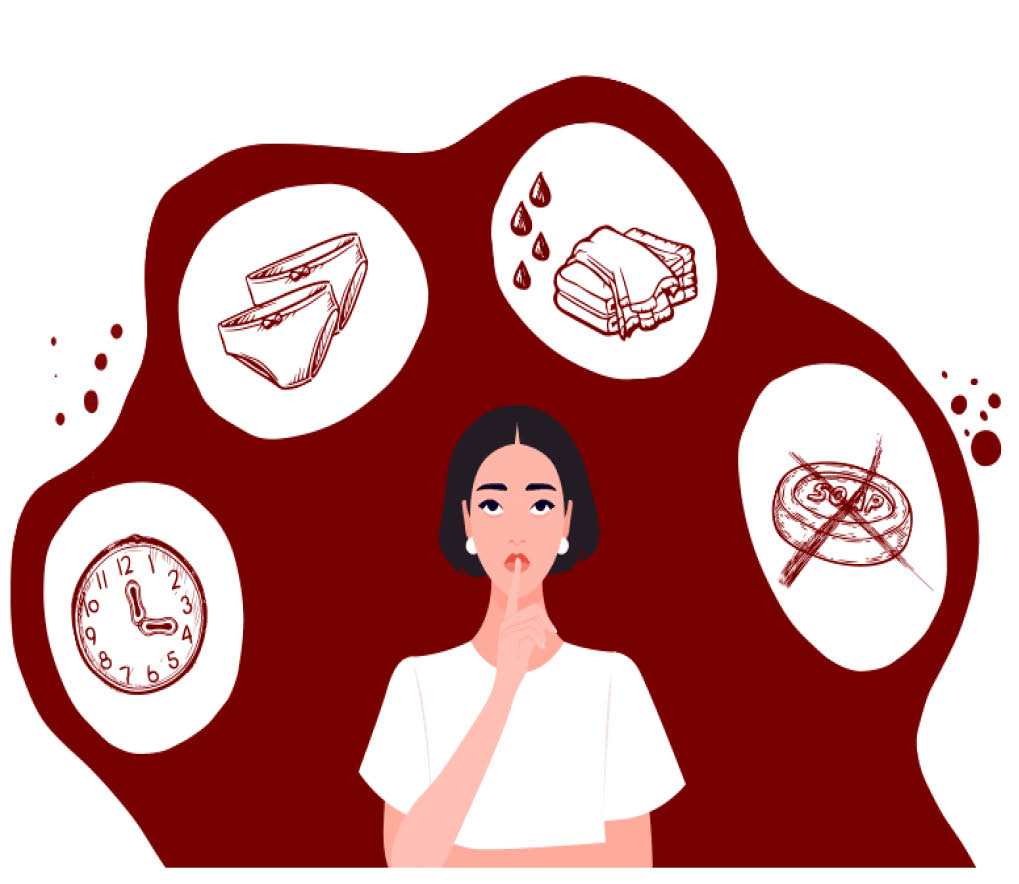On June 3, 2022, at a dialogue to commemorate the 2022 Menstrual Hygiene Day in Abuja, a non-governmental organisation (NGO), Plan International, said over 37 million Nigerian girls and women lack access to menstrual hygiene products, including sanitary pads, mainly because of high costs.
Charles Usie, Country Director, Plan International Nigeria, told stakeholders at the event tagged ‘Menstruation Matters: My Period, My Pride’ that same global effort ploughed into the eradication of HIV/AIDS should be channelled to menstrual health such that “it will get to a point where sanitary pads will become free for young girls.”
The Minister of Women Affairs, Mrs Pauline Tallen, noted that the increase in import tariffs continues to affect consumer prices and the purchasing ability of women and girls to procure the essential commodity.
Tallen regretted that the high cost of menstrual products, especially among school girls, would create ‘Period Poverty,’ a situation where women and young girls lack access to sanitary products due to financial constraints.
An average sanitary pad costs about N500 to N1000 for one pack made up of eight or 10 sanitary pads for each menstrual cycle which occurs once every month. But because of the high poverty rate in Nigeria, not many families can afford such monthly expenditure.
The minister, therefore, called on the federal government to note the danger the proposed National Diaper and Sanitary Pads Policy poses to the future of menstrual hygiene management for Nigeria’s girl child as it increases the import tariff on diapers and sanitary pads from 20 per cent to 55 per cent.
It is disheartening that because many of these women and girls cannot afford these sanitary pads, they opt for the unhygienic route of folding clothes and tissue paper, unaware that they could be exposed to Reproductive Tract Infections (RTIs) and death.
According to UNESCO, one in 10 girls in sub-Saharan Africa misses school during her menstrual cycle, an average of about 20 per cent of a given school year. And in Nigeria, 25 per cent of women lack adequate privacy for menstrual hygiene management. Globally, over 500 million women and girls lack adequate facilities for menstrual hygiene management (MHM). Inadequate WASH (Water, Sanitation and Hygiene) facilities, mainly in public places, including schools and workplaces can pose major challenges to women and girls.
It is alarming that over 37 million of Nigerian adolescent girls and women of reproductive age lack access to menstrual hygiene products and knowledge. And this affects girl-child education with many spending days at home during periods, due to a lack of menstrual products. But it ought not to be so, especially in a country that claims to be working towards boosting girl-child education.
First, in order for this issue to get the required attention, menstrual hygiene management should be part of the facilities provided in the nation’s primary healthcare facilities.
In addition, the National Diaper and Sanitary Pads Policy should be reviewed not only to ensure the availability, affordability and acceptability of sanitary pads in the country, but to maintain the import tariff on diapers and sanitary pads instead of increasing it from 20 per cent to 55 per cent as proposed.
And it wouldn’t be out of place for the National Policy on Education to be reviewed to incorporate Puberty Education as part of life skills learning including the provision of Water, Sanitation and Hygiene (WASH) facilities necessary for any school to have the programme approved.
Also, the challenge of water complicates menstrual hygiene management as many women and girls lack access to clean water, which leads to unhealthy period practices.
Most importantly, there should be sensitization programmes to ensure increased education on menstrual hygiene as the absence of adequate information is one of the major challenges of menstrual hygiene management, even globally.
A lot of girls go through puberty with little or no information about menstruation and this leads to unsafe practices resulting in health challenges, including infections of the urinary tract and other reproductive organs that in severe cases could lead to infertility.
The low level of awareness contributes greatly to the stigma, misconceptions and deeply rooted attitudes and myths about menstruation, including the erroneous belief that a menstruating woman or girl is cursed and therefore a harbinger of bad luck.
So, girls, boys, mothers, fathers, government, traditional, religious, community policy and decision makers should be active in the open dialogue on the beliefs, perceptions, myths and taboos associated with menstruation and its management in the communities.

 Join Daily Trust WhatsApp Community For Quick Access To News and Happenings Around You.
Join Daily Trust WhatsApp Community For Quick Access To News and Happenings Around You.


